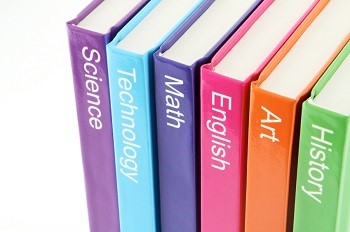Textbooks and What Really Matters

Recently we at Keys to Literacy engaged in a discussion around whether or not our professional development could be referred to as an instructional “program.” As a new employee, I found the conversation valuable for a number of reasons. We had to really think about what constituted a program. We talked about how we were similar and what our perceived differences were to other professional development companies. We surveyed the services we provide to teachers, schools, and districts. Finally, we concluded that as a professional development company that works with students, teachers, schools, and districts to improve teachers’ instructional practices using existing content, whatever that content might be, we were not actually a program with a particular scope and sequence of content and training. We, in fact, provide the necessary underpinning to any successful program implementation that a school might undertake.
Fast forward to this morning when I read Robert Slavin’s blog, “Do Textbooks Really Matter?” in which he said that the text books a school uses don’t contribute to student outcomes on achievement tests in any meaningful way. Instead, what appears to be a more significant factor is using a program that provides “a great deal of professional development on well-defined models of teaching, such as cooperative learning and teaching metacognitive skills.” Dr. Slavin’s “Success for All” is just such a program. We all know that there is a vast array of textbooks available to districts, some much better than others, so I was a bit relieved that although it is important to use a good text book, it will not necessarily be a district’s undoing if it is older or not as well written as we would like.
But what was interesting to me was the way he defined program as, “…a set of coordinated strategies designed to improve student achievement.” Programs, he said, have built-in professional development, and it is that professional development that Dr. Slavin points to as an essential part of student success. Having engaged in a full-ranging discussion with my colleagues of what constitutes a program, I understand where and how Keys to Literacy fits into the complex puzzle of student achievement. If, as the research suggests, textbooks are not the deciding factor in student achievement, and deep, sustaining, supportive teacher professional development is a more important factor, then the KTL approach of focusing on instructional practices using any content is a keystone piece of the puzzle. We work with schools using proven programs, like Success for All, to offer additional, complimentary support to teachers, or we work with schools who are coordinating their own literacy programs by combining content, strategies, professional development, coaching, and ongoing support.
Research is a winding path to navigate and we all need guidance on what to pay attention to and what to disregard. I have a number of places I look to for expertise, and Dr. Slavin, out of Johns Hopkins University, has provided such help in the past, so let me point you towards Johns Hopkins’ “Best Evidence Encyclopedia” (BEE) which usehttps://www.bestevidence.org/s clear, teacher-oriented language to provide summaries of educational research:
In closing, may I say how happy I am to be working with the wonderful professionals at Keys to Literacy. I look forward to many more fruitful discussions!

Your writing is so refreshing and authentic It’s like having a conversation with a good friend Thank you for opening up and sharing your heart with us